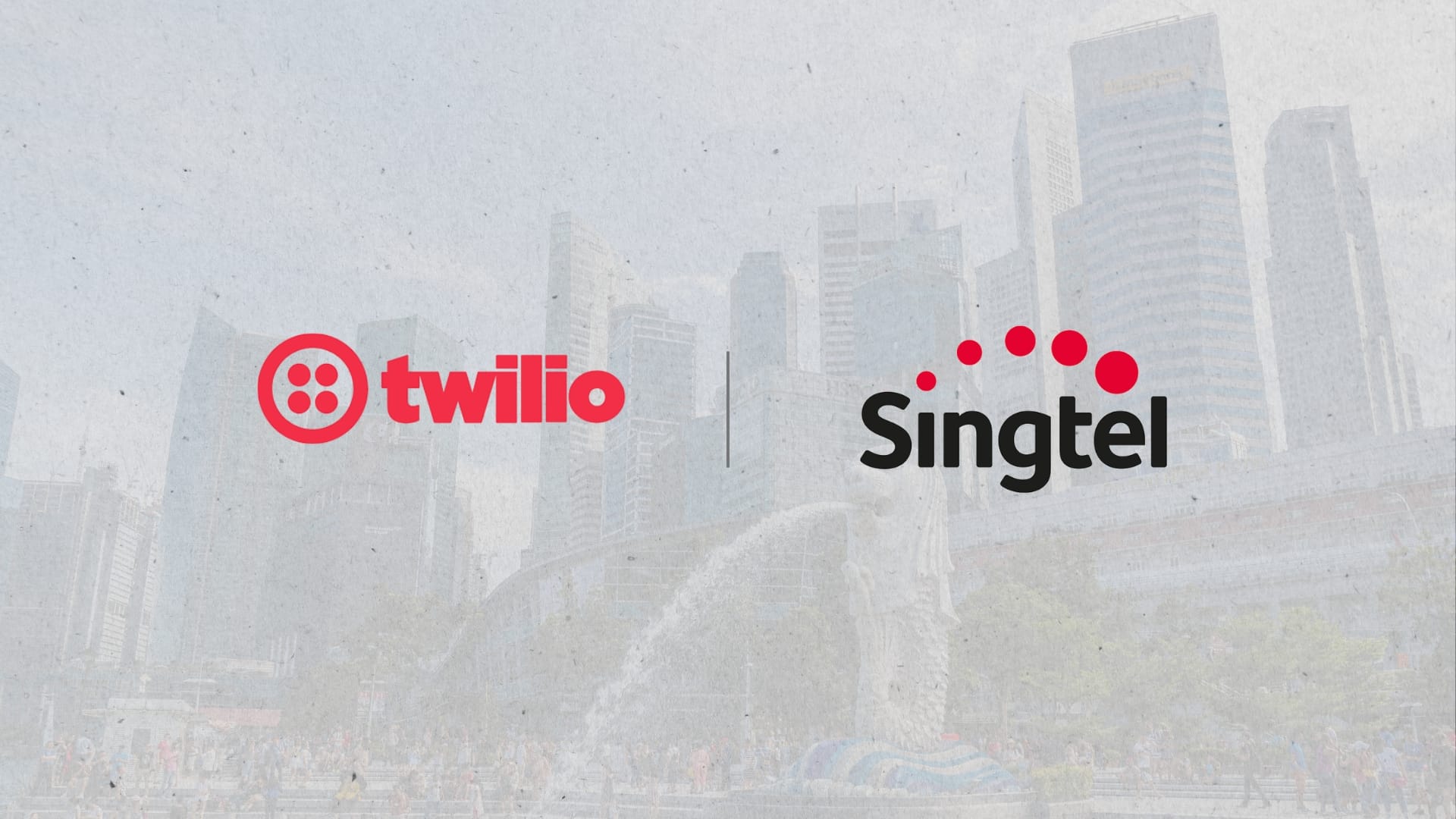Twilio teams up with Singtel to offer secure branded RCS messaging to businesses in Singapore
Twilio partners with Singtel to offer secure branded RCS messaging to businesses in Singapore, helping improve customer trust and engagement.

Twilio announced a new partnership with Singtel to offer businesses in Singapore a secure and branded messaging platform. Through this partnership, you can now connect with your customers directly in their mobile inboxes using Rich Communications Services (RCS) messaging. Twilio, a leading customer engagement platform, and Singtel, one of Asia’s top communications technology companies, are working together to help businesses build trust through secure and interactive messaging.
As consumers become more concerned about data privacy and security, you need to build stronger trust with your customers. According to Twilio’s 2024 Consumer Preferences report, almost 8 in 10 Singapore consumers (79%) said they would trust brand communication more if it included a verification badge. Another 68% said they would find a brand more trustworthy if they received a branded text message.
How RCS messaging improves customer experience and trust
Compared to traditional SMS, RCS messaging allows you to create richer, more interactive experiences. You can include branding, images, and buttons directly within messages, which helps your messages stand out and builds credibility.
“As consumers grow increasingly savvy and discerning, they demand trusted and immersive experiences at every touchpoint. RCS messaging offers an enhanced alternative to SMS and bridges the gap between traditional messaging and the interactive experiences offered by over-the-top channels. It provides the perfect solution to deliver interactive, dynamic communications while assuring customers of the sender’s identity,” said Robert Woolfrey, Vice President, APJ, Communications at Twilio. “We’re thrilled to partner with Singtel to empower businesses in Singapore to deliver exceptional customer experiences and foster trusted, meaningful relationships.”
Singtel also highlighted the value RCS messaging brings to businesses in Singapore. “Businesses in Singapore must adapt to the evolving expectations of consumers who are seeking more immersive interactions, especially through their mobile devices. Our partnership with Twilio enables businesses in Singapore to tap on RCS messaging to deliver rich and interactive communications that can improve their engagement with their customers in new and exciting ways,” said Terence Lai, VP of Digitalisation, Products and Partnerships at Singtel.
Twilio makes it easy for businesses to adopt RCS messaging
With Twilio’s platform, you can start using RCS messaging right away, even if you currently use SMS to reach your customers. Twilio’s RCS service offers several features designed to make the transition smooth and cost-effective:
- Automatic upgrade: Twilio can automatically upgrade SMS messages to RCS if your customer’s device supports it. For messages up to 160 UTF-8 characters, you will pay the same rate as a regular SMS, making the upgrade affordable.
- Immediate testing: You can build branded profiles directly in Twilio’s Console and start testing messages with selected devices immediately.
- No coding needed: Once your sender profile is approved, you can activate RCS messaging through the Console without needing to change any code, update APIs, or adjust configurations. Twilio handles all the necessary registration, onboarding with carriers, and message delivery checks. If RCS is not available, the message will be automatically sent via SMS.
- Better insights: You can track customer engagement more effectively with features like read receipts, all within Twilio’s existing dashboards.
This launch makes Singapore the first country in Asia where Twilio offers RCS Business Messaging. Businesses across the United States, France, Germany, the United Kingdom, Mexico, and Brazil are already using Twilio’s RCS solutions to improve customer communication. By bringing this technology to Singapore, Twilio aims to help more businesses around the world enhance customer experiences through secure, interactive messaging.
















